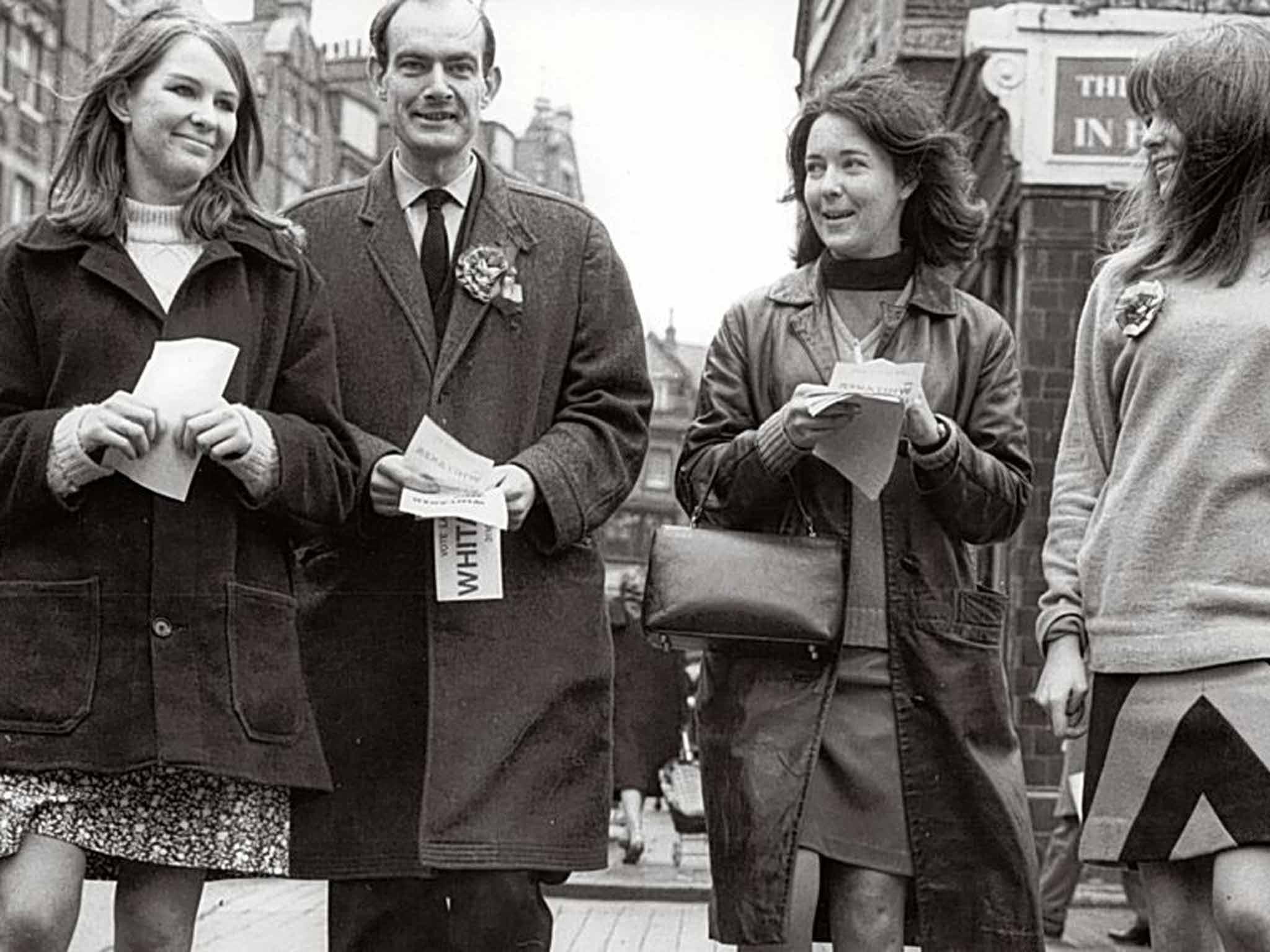Benjamin Whitaker: Hampstead's first Labour MP who went on to become a champion of civil and human rights at home and abroad

Benjamin Whitaker, an Eton-educated lawyer and lifelong admirer of George Orwell, made a significant contribution to civil and human rights at home and abroad, but not before becoming the first Labour MP to win the safe Tory seat of Hampstead, in the 1966 General Election, helping to give Harold Wilson's incumbent government a 97-seat majority.
Whitaker's victory, by 2,253 votes, was remarkable: Hampstead had been a Conservative stronghold for 81 years. Whitaker was a champion of a number of Wilson's progressive social reforms and held a number of key positions, including PPS to Anthony Greenwood, Minister of Overseas Development; Greenwood was later appointed Minister of Housing and Local Government, and Whitaker continued as PPS in the new department.
In 1969 he became Parliamentary Secretary in the Department of Overseas Development. Over this period he also garnered support for the abolition of theatre censorship, decriminalising homosexuality and abortion and ending the death penalty, and was a passionate supporter of Amnesty International.
With governmental positions came responsibilities; he was unable to voice his pre-election anti-American stance on their involvement in Vietnam, for example, a hot topic in Hampstead. At the 1970 election Hampstead reverted to type and he was defeated by Geoffrey Finsberg. It would take another 22 years before Labour, and Glenda Jackson, reigned again.
Born in Nottinghamshire in 1934, Whitaker was the third son of Major General Sir John Whitaker and his wife Pamela. After Eton he graduated in history from New College, Oxford then did National Service with the Coldstream Guards. After studying law he was called to the Bar in 1959 and lectured in law at London University. He also worked for the Italian Mafia-fighting social activist and poet Danilo Dolci, long before he made his own distinguished contributions to civil liberties in Britain.
As a member of Amnesty International Whitaker undertook dangerous assignments to uncover human rights abuses. One such was to Rhodesia, following UDI. With his pregnant wife he took anti-UDI literature and entered a secret detention camp; a live interview had been arranged with the Rhodesian TV service, and Whitaker condemned the regime as "an illegal police state afraid of the truth". Within 10 minutes the police raided the studio; the couple evaded them and returned to the UK.
Following his election defeat, Whitaker indicated that he was unlikely to stand for parliament again as was hoping to gain a research post. "It's a bit like being a policeman," he said, "a miserable job that someone has to do."
With his natural charm and sense of propriety, Whitaker's move into fighting for social welfare, minority rights, the arts and education, against genocide, poverty and slavery and censorship, seemed natural. A year later he became Director of the Minority Rights Group, an international human rights organisation. Over the next two decades he championed global poverty charities, writing and publishing well-researched reports.
By 1975, he was the British representative on a UN sub-committee on minorities' rights and in 1985 headed an investigation into whether Ottoman atrocities against Armenians during the Great War amounted to genocide. His report concluded that they had, and he refused to withdraw it despite Turkish outrage.
After a stint as Chair of the Defence of Literature and the Arts Society, the anti-censorship group, fighting off attacks on the BBC and National Theatre by the likes of Mary Whitehouse, Whitaker became the executive director of the UK branch of the Lisbon-based Calouste Gulbenkian Foundation (1988-99).
An ardent admirer of George Orwell, and in particular Animal Farm, which he viewed as "a classic that is there to be read for all time," Whitaker was a leading member of a memorial trust which erected a plaque to the writer in Pond Street, Hampstead and sought to have a statue installed at Broadcasting House. "I wish Orwell was here with us now, to hear his views on the mess that we are in, the media and the evidence of the Leveson inquiry," Whitaker said. "We need heroes like Orwell but there aren't any with his vision in the world today."
Whitaker was also a prolific author, his books including The Police (1964), which won critical acclaim from all sides, and Crime & Society (1967). In 1964 he married Janet Stewart, who was created a life peer in 1999. In retirement he enjoyed listening to his wife in the Lords, painting, writing, photography, theatre, music and opera, and walking, especially in the hills and on the coast. He died after developing MRSA in hospital following an operation on a broken ankle.
I knew Ben Whitaker well at school, and we became the only two old Etonians in the Parliamentary Labour Party, writes Tam Dalyell. Thirty years after he lost his seat we bumped into each other. "My life has been more productive," he said, "and certainly happier, than had I remained in the House of Commons."
Benjamin Charles George Whitaker, author, campaigner, lawyer and politician: born Nottinghamshire 15 September 1934; CBE 2000; married 1964 Janet Alison Stewart (one daughter, two sons); died Piddinghoe, Sussex 8 June 2014.
Subscribe to Independent Premium to bookmark this article
Want to bookmark your favourite articles and stories to read or reference later? Start your Independent Premium subscription today.

Join our commenting forum
Join thought-provoking conversations, follow other Independent readers and see their replies